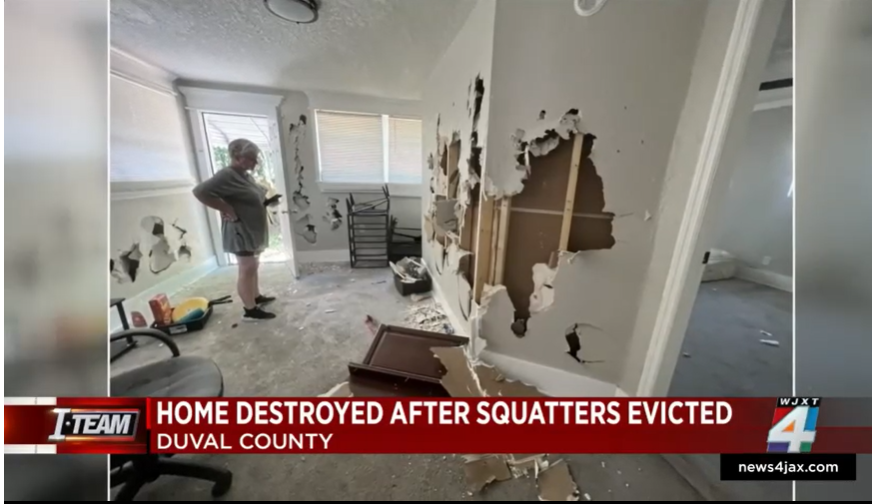
Business Management

By Paul Howard
•
07 Mar, 2024
Tenants who have a bad rental history or a criminal history need a place to live just like everyone else. These characters know they can’t rent from large, well managed apartment communities because they check references. So, who are they looking for? They are looking for a nice, private landlord who thinks he’s is a good judge of character.

By Paul Howard
•
26 Feb, 2024
Rampant, Increasing Fraud Impacting Rental Housing Costs Curtesy National Multifamily Housing Council - Throughout the country, incidences of rental application, financial and identity fraud are on the rise and fueled by social media. Results from a groundbreaking new survey of rental housing providers have revealed staggering increases of fraud, contributing to both the growth in rents and number of evictions. A vast majority of respondents (70.7%) reported experiencing an increase in fraudulent applications and payments, utilizing fraudulent documentation, financial statements and even identities in the past twelve months. Driven in part by social media platforms such as TikTok and Instagram , the rise in false rental housing applications is exacerbating rental costs, fueling the housing affordability challenges facing communities across the country and undermining the credibility of eviction data. These fraudulent incidents consist of a wide range of wrongdoing, including criminal behavior. One of the most notable findings in the survey was the share of evictions tied to fraudulent applications with respondents reporting that, on average, 23.8% of their eviction filings were linked to fraudulent applications and related failure to pay rent over the past three years. This in turn leads to higher costs for rental housing providers and, ultimately, the renters they house. The average respondent was required to write off nearly $4.2 million in bad debt over the past 12 months. Respondents reported that approximately a quarter (24.5%) of this bad debt, on average, could be attributed to nonpayment of rent due to fraudulent applications. “There has been anecdotal evidence of the rise in fraudulent activity over recent years, but now we have clear evidence of the staggering impact of these crimes on the rental housing market,” said NMHC President Sharon Wilson Géno. “While most renters are honest, those who are not are causing the cost of rental housing to increase for everyone. Additional delays in many jurisdictions in the lease enforcement process, even when there is clear fraud, incentivizes bad actors and means that this illegal behavior costs responsible renters even more. We call on lawmakers and courts to take action that will address this problem.” This new survey of rental housing providers conducted by the National Multifamily Housing Council (NMHC) found that nearly all respondents (93.3%) reported experiencing fraud in the past twelve months. Of those who experienced fraud: 84.3% have seen applicants falsifying or fabricating pay stubs, employment references or other income documentation; 80.0% observed prospective renters misrepresenting information on applications; 70.0% reported identity theft, fraudulent ID documents or use of another individual’s personal information; 67.1% experienced unauthorized cohabitants, illegal subletting or other actions to evade application or the leasing process; and 62.9% of respondents reported the use of fraudulent checks or other payment methods. Respondents who observed an increase in fraudulent applications and payments reported a 40.4% average increase over the past 12 months. Sixty seven percent of those who experienced an increase in fraudulent applications and payments said that this varied by jurisdiction, and many (46.9%) called out Atlanta specifically as a jurisdiction where increases in fraud were most concentrated. Residents and rental housing providers can learn more about avoiding fraud and scams through this Consumer Financial Protection Bureau resource . The NMHC Pulse Survey on Operational Impact of Rental Application Fraud and Bad Debt was conducted from November 15, 2023, to January 9, 2024, and received responses from NMHC and National Apartment Association (NAA) members representing 75 leading apartment owners, developers and managers. The full survey can be found here .

By Paul Howard
•
23 Feb, 2024
Our eviction business has seen a sizeable increase in the number of squatters moving into empty rental units. The stories are similar. The landlord discovers strangers have taken up residency in their rental home. Naturally, they are angry and worried. Will they become violent? Will they destroy the house? How do I get them out?
Feedback, Questions, Opinion
Thank you for contacting us.
We will get back to you as soon as possible.
We will get back to you as soon as possible.
Oops, there was an error sending your message.
Please try again later.
Please try again later.








